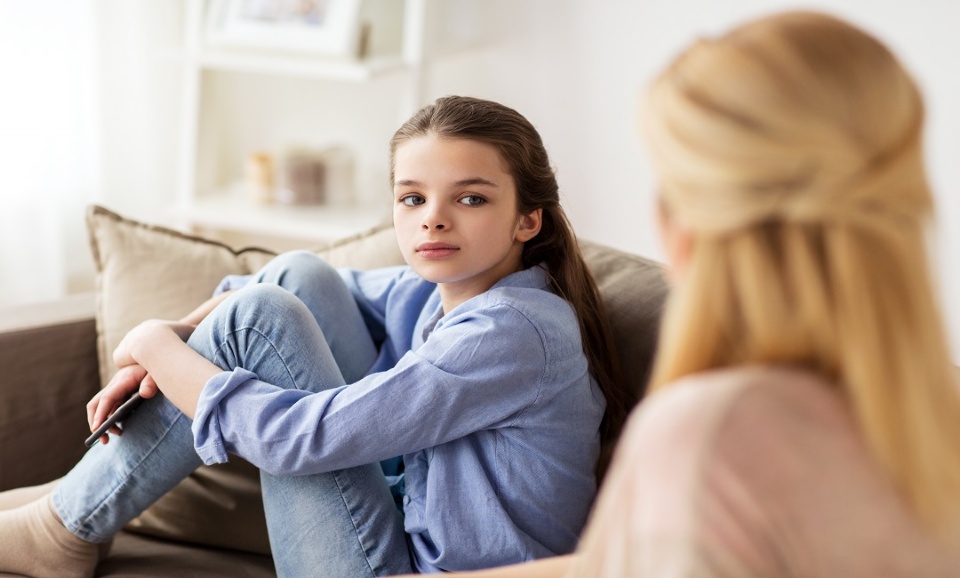If you’re a
parent, chances are you’ve lost your cool with your children at some point. You
may have the intention of keeping calm, but what if your little angel just drew
all over the dining
room wall with a Sharpie? Or your teenager took your car without asking?
As wonderful as
kids are, raising them can also be a challenge. They act out in different ways
and it may be difficult for parents to discipline them without losing their
cool sometimes.
The Evolution of Discipline
Child
psychologist Dr. Tamara Soles observes that our perception of discipline has
been shifting. “Parenting, and
discipline in particular, has evolved over the last few decades,” she says. “In
many respects, this shift has been away from authoritarian models (think strict
rules, physical discipline, and “because I said so” parenting) to gentler
parenting models based on respect and loving limits.”
In other words, discipline doesn’t have to be synonymous with
punishment. Many parents believe you can’t teach your children to behave better
by making them feel worse. The goal is for children to understand the basics of
good behaviour and to learn how to regulate their emotions. At its core,
discipline is about teaching, not about reward and punishment.
Does Yelling Have Negative Consequences?
Parents are often stressed,
overburdened, tired, and under-supported. When their buttons are pushed, they
may react by yelling at their children.
This is
understandable, but Dr. Soles stresses the importance of remaining mindful.
“Yelling, especially as a frequent strategy, can have significant impacts both
short and long-term on acting out behaviours, self-esteem, and symptoms such as
anxiety and depression,” she warns. Dr. Soles also adds that yelling undermines
the very lesson parents are trying to teach their children, which is how to
regulate intense emotions in appropriate ways.
Coping Strategies for Parents
Parenting without yelling may
be easier said than done. Luckily, there are effective
strategies that can help parents practice patience and deal with their children
in a calm manner. Here are a few tips;
React
less;
When you’re angry, you may react in haste and lay blame. Instead, try to look
at the situation objectively. Breathe and choose your words carefully.
Use
positive reinforcement; Instead of always pointing out when
your children misbehave, try to also praise them when they behave well.
Understand
their motive for misbehaving; Communicate with your child and
try to uncover what’s driving their
behaviour. Try to empathize with and acknowledge their feelings.
Maintain
a strong bond with your children; Being close and keeping an open
dialogue with your children will make disciplining easier.
If
all else fails, step away; If you find yourself getting angry and
losing control, take a break. It’s perfectly fine to take a step back to
recalibrate. You’re not able to make good decisions under extreme duress.
Keep in mind that children
take their cues from their parents. So if they see you managing and regulating
your emotions, they will learn to do the same in time. “Only a calm parent can calm a child,” Dr. Soles adds.

 In The Latest Issue:Latest Issue:
In The Latest Issue:Latest Issue:
- A Bittersweet Farewell
- The new Laval Aquatic Co...
- The End of an Era:
Articles
Calendar
Virtual- ANNUAL TEACHER APPRECIATION CONTEST
- APPUI LAVAL
- ARTS & CULTURE
- CAMPS
- CAR GUIDE
- CCIL
- CENTENNIAL ACADEMY
- CHARITY FUNDRAISING
- CITYTV
- COSMODÔME
- COMMUNITY CONNECTIONS
- COVER STORY
- DINA DIMITRATOS
- ÉCOLE SUPÉRIEURE DE BALLET DU QUÉBEC
- EDITORIALS
- ÉDUCALOI
- EDUCATION
- EMPLOYMENT & ENTREPRENEURSHIP
- FÊTE DE LA FAMILLE
- FÊTE DU QUARTIER SAINT-BRUNO
- FAMILIES
- FESTIVAL LAVAL LAUGHS
- FÊTE DE QUARTIER VAL-DES-BRISES
- FINANCES
- GLI CUMBARE
- GROUPE RENO-EXPERT
- HEALTH & WELL-BEING
- 30 MINUTE HIT
- ANXIETY
- CHILDREN`S HEALTH & WELLNESS
- CLOSE AID
- DENTAL WELLNESS
- EXTREME EVOLUTION SPORTS CENTRE
- FONDATION CITÉ DE LA SANTÉ
- GENERAL
- HEARING HEALTH
- MESSAGES FROM THE HEALTH AGENCY OF CANADA
- MENTAL HEALTH
- SEXUALITY
- SOCIAL INTEGRATION
- SPECIAL NEEDS
- TEENS
- THE NUTRITION CORNER
- THE NUTRITION CORNER - RECIPES
- VACATION DESTINATION
- WOMEN'S FITNESS
- WOMEN'S HEALTH
- HILTON MONTREAL/LAVAL
- HOME & GARDEN
- INTERNATIONAL WOMEN'S DAY
- JAGUAR LAVAL
- LAVAL À VÉLO
- LAVAL FAMILIES TV SHOW
- LAVAL FAMILIES MAGAZINE CARES
- LAVAL URBAN IN NATURE
- LE PARCOURS DES HÉROS
- LES PETITS GOURMETS DANS MA COUR
- LEON'S FURNITURE
- LEONARDO DA VINCI CENTRE
- LFM PREMIERES
- LIFE BALANCE
- M.P. PROFILE
- MISS EDGAR'S AND MISS CRAMP'S SCHOOL
- MISSING CHILDREN'S NETWORK
- NETFOLIE
- NORTH STAR ACADEMY LAVAL
- OUTFRONT MEDIA
- PASSION SOCCER
- PARC DE LA RIVIÈRE-DES-MILLE-ÎLES
- PÂTISSERIE ST-MARTIN
- PIZZERIA LÌOLÀ
- PLACE BELL
- PORTRAITS OF YOUR MNA'S
- ROCKET DE LAVAL
- SACRED HEART SCHOOL
- SCOTIA BANK
- SHERATON LAVAL HOTEL
- SOCIÉTÉ ALZHEIMER LAVAL
- STATION 55
- STL
- SUBARU DE LAVAL
- TECHNOLOGY
- TEDXLAVAL
- TODAY`S LAURENTIANS AND LANAUDIÈRE
- TODAY`S LAVAL
- WARNER MUSIC
- THIS ISSUE
- MOST RECENT
Magazine
Disciplining Without Yelling
Articles ~e 105,7 Rythme FM 4 chemins Annual Teacher Appreciation Contest Appui Laval Arts & Culture Ballet Eddy Toussaint Camps THIS ISSUE MORE...
CONTESTS Enter our contests
CONTESTS Enter our contests
CALENDAR
Events & Activities
COMMUNITY Posts Events
PUBLICATIONS Our Magazine Family Resource Directory
LFM BUSINESS NETWORK Learn more
COUPONS Click to save!
COMMUNITY Posts Events
PUBLICATIONS Our Magazine Family Resource Directory
LFM BUSINESS NETWORK Learn more
COUPONS Click to save!
SUBSCRIPTIONS
Subscribe to the magazine
Un-Subscribe
E-NEWSLETTER Subscribe to our E-newsletter Un-Subscribe
WRITE FOR US Guidelines & Submissions
POLLS Vote today!
E-NEWSLETTER Subscribe to our E-newsletter Un-Subscribe
WRITE FOR US Guidelines & Submissions
POLLS Vote today!
ADVERTISERS
How to & Media guide
Pay your LFM invoice
SUGGESTIONS Reader's Survey Suggest a Listing
LFM About Us Our Mission Giving Back Contact Us
SUGGESTIONS Reader's Survey Suggest a Listing
LFM About Us Our Mission Giving Back Contact Us
 PICK-UP LOCATIONS
Get a copy of LFM!
PICK-UP LOCATIONS
Get a copy of LFM!
TERMS & CONDITIONS Privacy | Terms
ISSN (ONLINE) 2291-1677
ISSN (PRINT) 2291-1677
Website by ZENxDESIGN



 BY:
BY: 
Tweet
Share